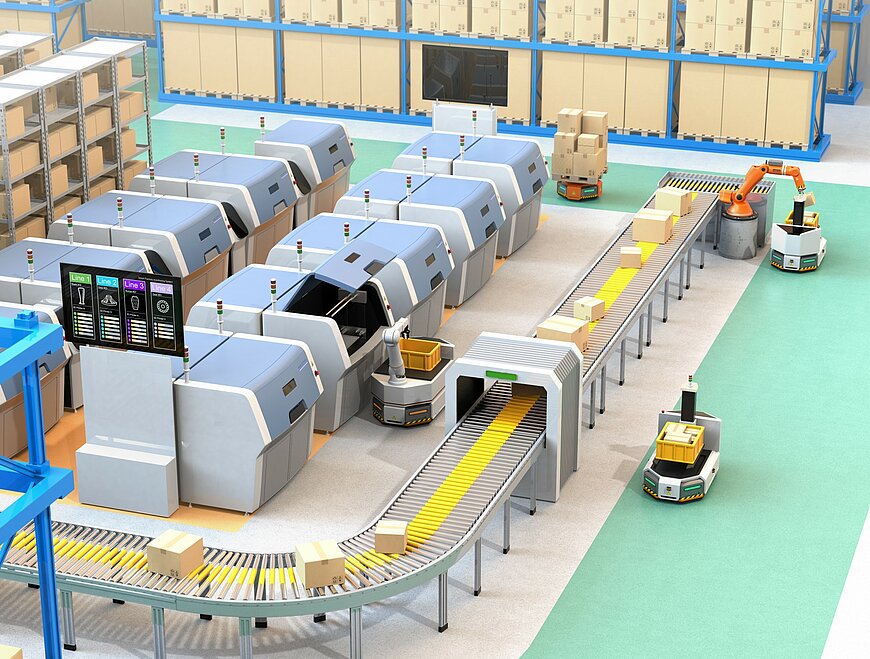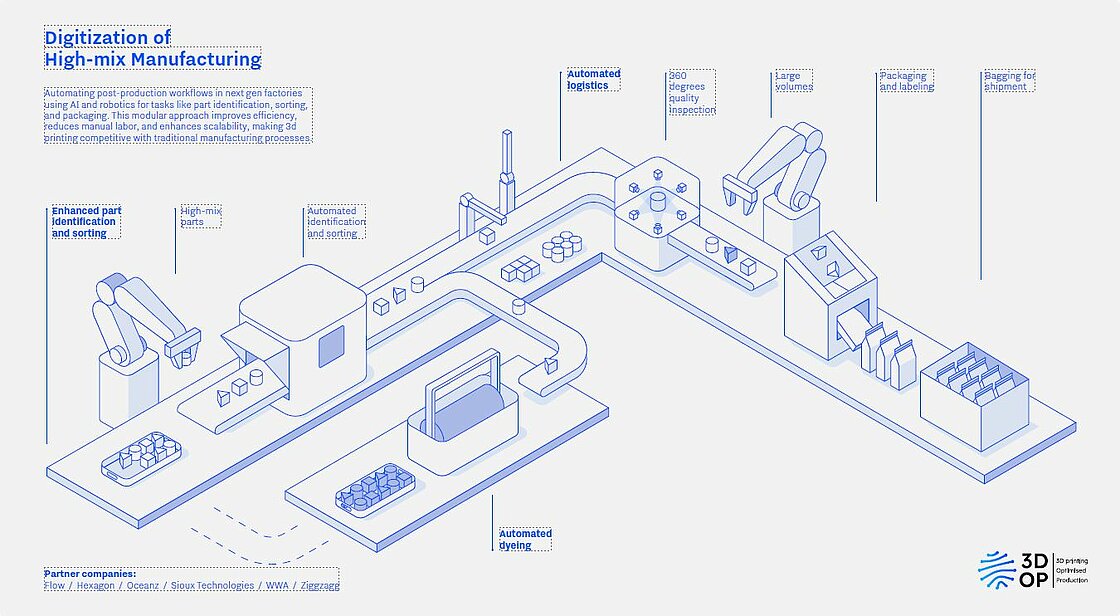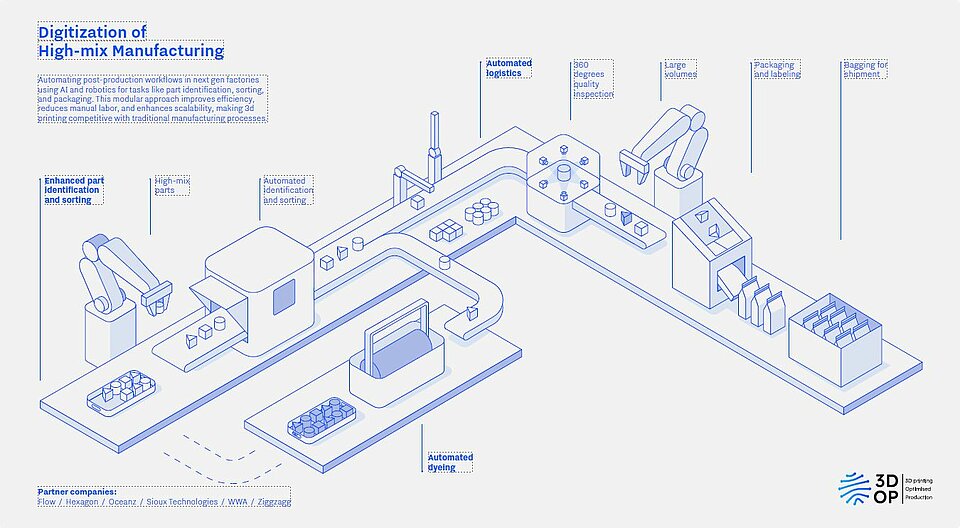Digitization of High-mix Manufacturing



One of the key challenges in the industry is the manual nature of post-printing processes, which creates bottlenecks in 3D printing production lines. To overcome this, 3DOP is developing modular units that can automate key functions such as part identification, sorting, quality control, and packaging. These functions are critical in handling the diverse range of shapes, sizes, and materials produced through 3D printing.
Artificial intelligence (AI) and machine vision technologies are deployed to improve the recognition and sorting of printed parts. By automating these steps, the project aims to streamline production and reduce the labor-intensive tasks that currently limit the scalability of 3D print factories. An example is the development of bin-picking robots, capable of selecting and handling a large variety of objects produced simultaneously in the printer.
The modular system being developed is designed to be highly adaptable, allowing companies to integrate different materials and production techniques within a single automated framework. This modular approach offers flexibility and the ability to scale up production based on demand, which is essential for handling high-mix manufacturing environments.
Collaboration is key, as the project pulls expertise from different sectors to tackle the challenges of automating diverse 3D printing processes. The solutions developed have the potential to not only optimize 3D printing factories but also influence traditional manufacturing processes by introducing higher levels of automation, precision, and efficiency.
3DOP is changing 3D print factories by developing automated, modular production lines that can handle complex tasks like part identification, sorting, and packaging. With the use of AI and robotics, the project will eliminate bottlenecks, reduce manual labor, and make 3D printing more competitive with traditional manufacturing processes, offering flexibility for high-mix, high-volume production.